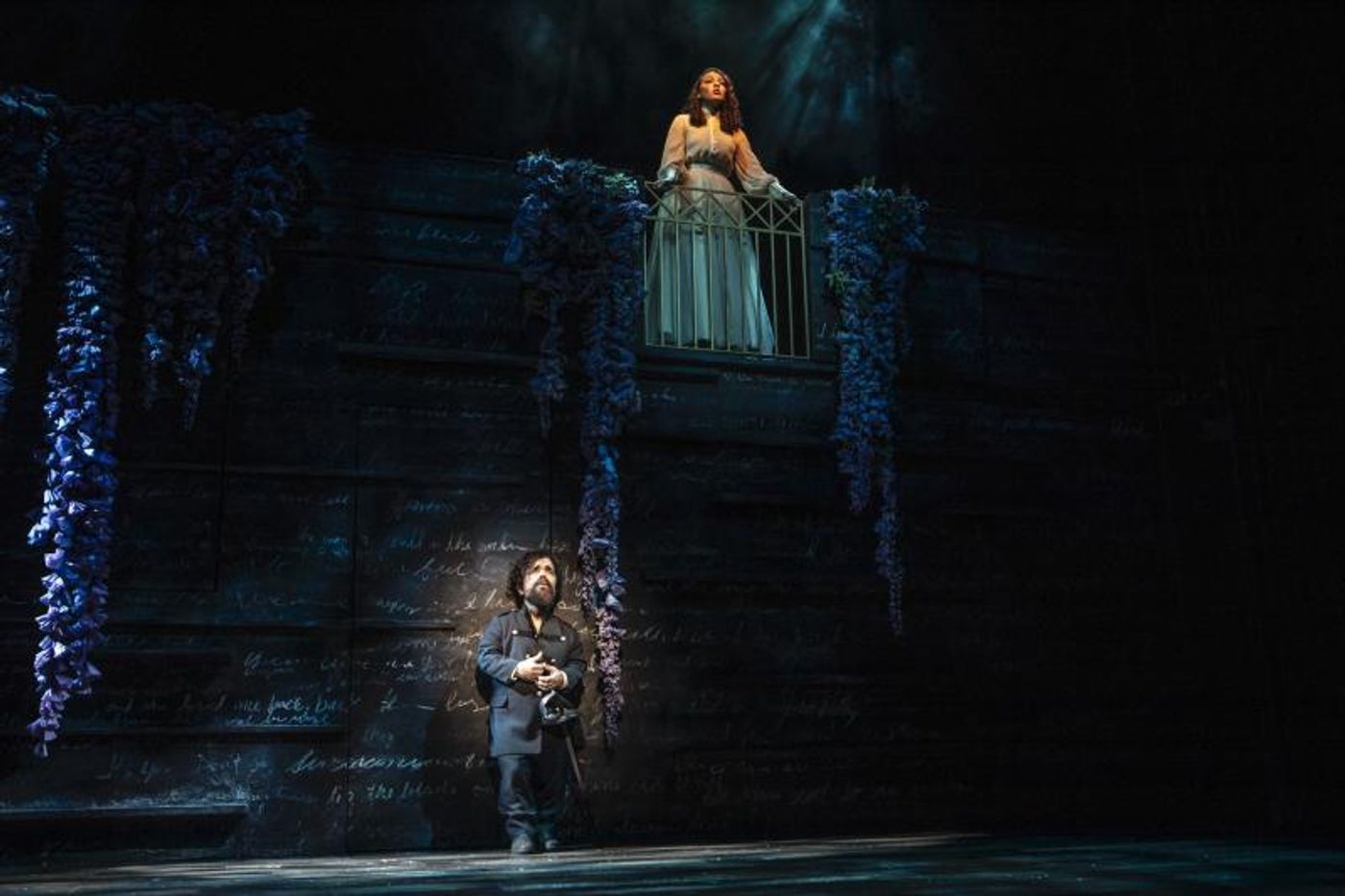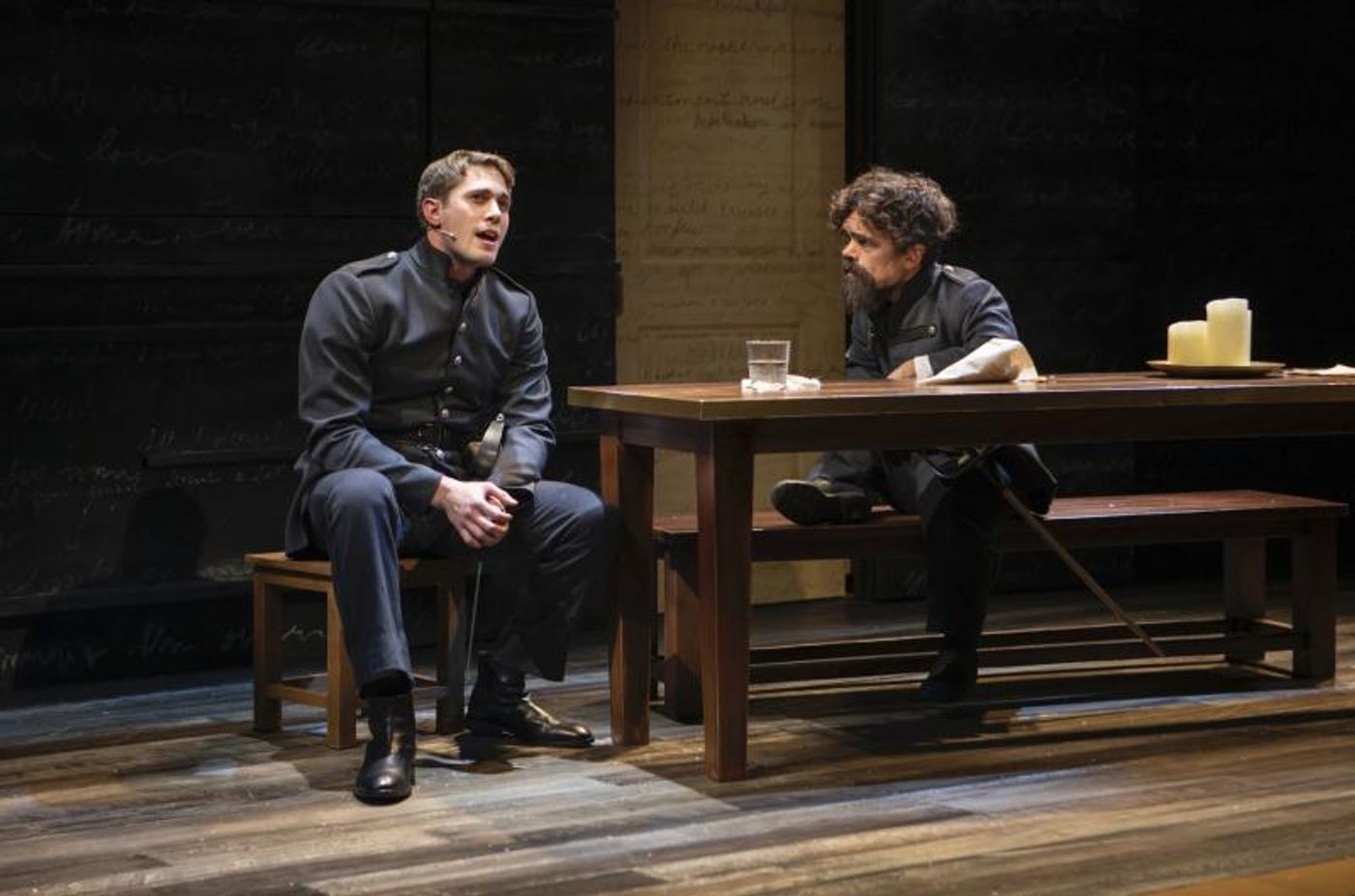Review: Peter Dinklage Deserves Better Than Dreary, Passionless CYRANO Musical
The cleverest part of adaptor/director Erica Schmidt's new musical based on Edmond Rostand's classic CYRANO DE BERGERAC is that the two times a character makes mention of the title fellow's very large nose, there is a pause before the word, making it clear that the speaker was about to say something else, but thought better of it.

(Photo: Monique Carboni)
Peter Dinklage doesn't wear the large prosthetic proboscis traditionally associated with the role, suggesting that in this version, titled Cyrano, no matter who plays the great swordsman and poet, audience members can decide for themselves what physical characteristic it is he possesses that causes him to feel that romance with the woman who has captured his heart is a lost cause.
Sadly, any cleverness that might be found in this take on one of theatre's most enduring love stories (though in contemporary thought, it may be seen as another tedious example of a man placing a woman on a pedestal rather than seeing her for who she is) is hampered down by a lugubrious chamber-style score by members of the Grammy-winning alternative rock band The Nationals. Composers Aaron Dessner and Bryce Dessner seem intent on withdrawing any hint of an up-tempo (applause buttons are also dismissed) in favor of two hours' worth of dreary emotional expressions and the lyrics by Matt Berninger and non-National Carin Besser are completely lacking in Rostand's panache ("I have a father. He isn't well. He thinks he might be going to hell. / He was a sinner. He liked to fight. So I don't know. He might be right.").

(Photo: Monique Carboni)
Played with an ensemble of eleven actors, the text is a standard telling of how Cyrano can never bring himself to confess his adoration for his cousin Roxanne (a fine effort with dull material by the talented Jasmine Cephas Jones), who has fallen for the handsome, but inarticulate soldier, Christian (Blake Jenner). Smitten with Roxanne himself, Christian accepts help in wooing her in the famous balcony scene, where the poet, hidden by the night, feeds him the words that capture her love. When the two men are sent to war, Cyrano risks death every day by venturing across the front lines to send off daily letters of Christian's devotion that set her heart ablaze.
An excellent actor, Dinklage has appropriate command of his surroundings, but his musical moments -- small-ranged deep baritone passages sung in a gravelly voice --undermine his efforts. The decisions to exclude any demonstrations of the character's expertise with the sword and to completely cut the play's most famous writing flourish, a comic monologue where Cyrano lists that many ways a rival may have criticized the size of his nose more cleverly ("Tis a rock!. . .a peak!. . .a cape!-A cape, forsooth! 'Tis a peninsular!"), leave the leading man without many textures to play.
Reader Reviews
Powered by
|
Videos

